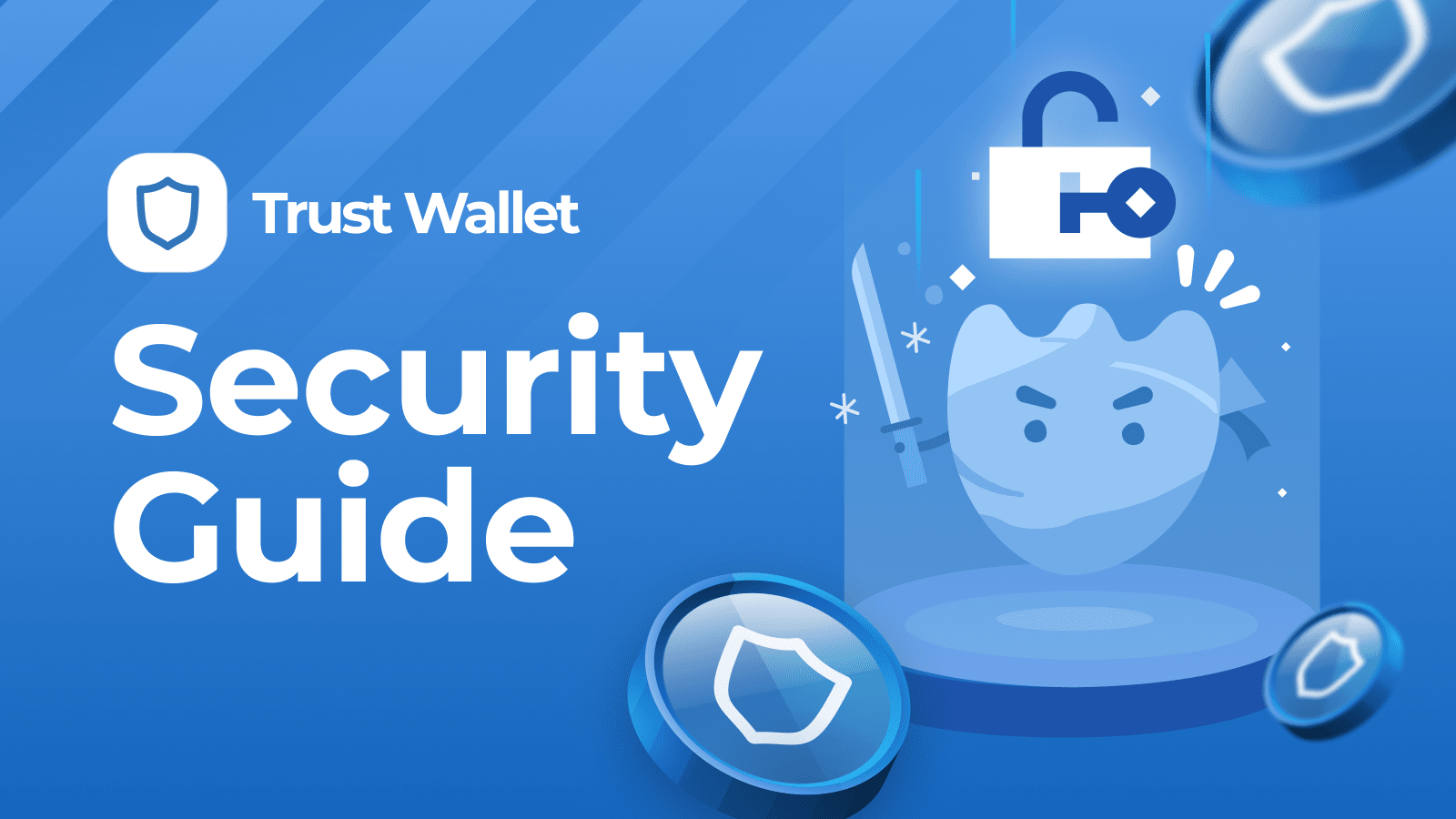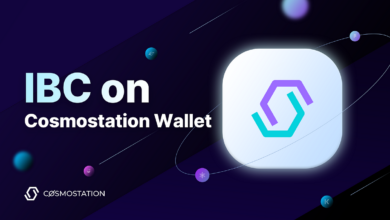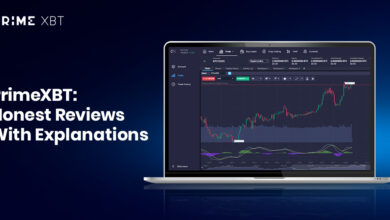Trust Wallet is a mobile wallet created for storing cryptocurrency. It is currently one of the safest and most reliable mobile wallets in the market, and users can enjoy the convenience and security provided by its easy-to-use interface. It was first created as an Ethereum wallet before expanding support to other cryptocurrencies. Trust Wallet makes it possible for users to easily protect and manage their digital assets with just their mobile phones. In today’s digital age, there are growing concerns about cybersecurity; hackers preying on unsuspecting individuals to steal their digital assets. In this article, we will explore the security features provided by Trust Wallet, and how users can safeguard their digital assets in a decentralized world.
Trust Wallet is a decentralized mobile wallet that allows users to store, manage, and trade their cryptocurrencies. It was acquired by Binance – one of the largest cryptocurrency exchanges – in 2018, and has since become one of the most popular wallets in the market. Its key selling points include its ease of use, support for multiple cryptocurrencies, and its decentralization, which means it operates on a distributed network that is resistant to hacking attacks.
User Control
One of the most significant features of Trust Wallet is that it provides users with complete control over their cryptocurrencies. They can control the wallet’s private keys, which is a significant feature, particularly for those who store large amounts of cryptocurrency. In this way, users can safely store their cryptocurrency with no middleman, minimizing the possibilities of loss and theft.
Biometric Security
Trust Wallet offers biometric lock functionality in addition to a PIN code. The biometric features enable users to secure their wallets with the help of facial recognition, thumbprints, and other biometrics. This provides an extra layer of protection, ensuring that access to the wallet is only possible with authorized credentials.
Multi-Cryptocurrency Support
Trust Wallet fuels the decentralization process by supporting multiple cryptocurrencies, enabling users to store a wide range of digital assets in one place. It currently supports Ethereum, Bitcoin, Binance Coin, and others. The wallet keeps itself updated with the latest integration of new coins, providing users with a diverse range of assets and an opportunity to earn higher returns.
Open Source and Interoperability
Trust Wallet has a significant edge in its open-source and interoperability features, having an open-source wallet allows developers to access the code of the wallet and verify its security features, ultimately providing users with enhanced security and peace of mind. Interoperability is achieved via protocols called wallet-connect and trust-dapp. This interoperability enables users to connect their Trust Wallet with various decentralized applications (dApps) and perform transactions.
Decentralized Storage
Trust Wallet is a decentralized wallet, meaning it is not affiliated with any government or central authority. All of the data is stored on the users’ phone, and its servers are operated solely by Trust Wallet. This decentralized system ensures that there is no single point of failure and reduces the possibility of theft or hacking.
As the use of cryptocurrencies continues to increase, more people are looking for ways to keep their digital assets safe. One of the most popular ways to store cryptocurrencies is through decentralized wallets like Trust Wallet. Trust Wallet is a mobile application that supports many cryptocurrencies and allows users to store, manage, and trade their assets. However, because it is decentralized, there are certain security risks users should be aware of. In this blog post, we will explore Trust Wallet security, and provide tips on how to safeguard your digital assets in a decentralized world.
How secure is Trust Wallet?
Trust Wallet uses various security measures to protect users’ digital assets. For one, it is a non-custodial wallet, which means users have full control over their private keys. Private keys are necessary to access or transfer cryptocurrencies from the wallet, and by having full control over them, users eliminate the risk of theft or hacking.
Trust Wallet also uses various encryption protocols, such as AES-256, to secure users’ private keys and personal information. Additionally, Trust Wallet is open-source, which means its code is publicly available for inspection by developers and users, making it more secure than proprietary wallets.
How to enhance Trust Wallet security
While Trust Wallet is already secure, there are additional steps users can take to enhance their wallet security. First, users need to ensure that their device is secure by downloading anti-virus software, using strong passwords, and avoiding downloading malicious software. If a malicious third-party gains access to a user’s device, they may also gain access to the Trust Wallet app and steal their digital assets.
Users must also exercise caution when using public Wi-Fi networks, which may be used by hackers to infiltrate their devices and steal their data. When using a public network, users should use a virtual private network (VPN) or other security measures to secure their connection.
Another useful step is enabling two-factor authentication, which provides an extra layer of security to users’ accounts. Two-factor authentication requires users to enter a code or provide biometric verification before accessing their Trust Wallet account. This added measure ensures that only authorized users access the wallet, even if their private keys or device are compromised.
What to do in case of a security breach?
In the event of a security breach or hack, the first step is to contact Trust Wallet support and report the issue. Trust Wallet support can then take the necessary steps to secure the user’s account and prevent further damage. If the security breach results in the loss of digital assets, users may file a report with local law enforcement and submit a support ticket to Trust Wallet to begin the process of recovering their lost assets. In most cases, Trust Wallet will work with the user to recover lost assets or compensate them for their losses.
Conclusion:
Trust Wallet has proven to be one of the most reliable and secure mobile wallets in the market, with advanced features that guarantee users’ security and convenience. Trust Wallet has made it possible for users to enjoy the perks of decentralized finance while still providing the necessary security for their digital assets. These security features, such as user control, biometric security, multi-cryptocurrency support, open-source design, interoperability, and decentralized storage, make Trust Wallet a trustable wallet in the cryptocurrency market. It is essential to keep crypto assets secure and safe from hackers and fraudsters; Trust Wallet is one of the digital tools that can help us achieve that security. By providing these features, Trust Wallet raises the standard of security in the decentralized world, and we look forward to seeing how they continue to evolve and upgrade their platform over time.
Trust Wallet is a secure and trustworthy platform for storing digital assets. While it is already secure, users can further enhance their wallet security by taking simple steps such as downloading anti-virus software, enabling two-factor authentication, and avoiding malicious downloads. Trust Wallet’s decentralized nature means that users are in complete control of their digital assets, which eliminates the possibility of third-party stealing or losing assets. By following best practices and taking pro-active steps, users can safeguard their digital assets in a decentralized world.

 Defiway Review: Many Crypto Tools in One Place
Defiway Review: Many Crypto Tools in One Place Maximize Your Convenience and Security with Solflare Wallet.
Maximize Your Convenience and Security with Solflare Wallet. Understanding How Cosmostation Wallet Works
Understanding How Cosmostation Wallet Works Inflation-proof your portfolio – Crypto Trading Techniques for High Inflation
Inflation-proof your portfolio – Crypto Trading Techniques for High Inflation Inflationary Pressures and Crypto Trading – Techniques for Success
Inflationary Pressures and Crypto Trading – Techniques for Success Bitcoin: the Past, the Present, the Future
Bitcoin: the Past, the Present, the Future PrimeXBT: Scam or Safe?
PrimeXBT: Scam or Safe? How Does Loopring Crypto Work?
How Does Loopring Crypto Work?